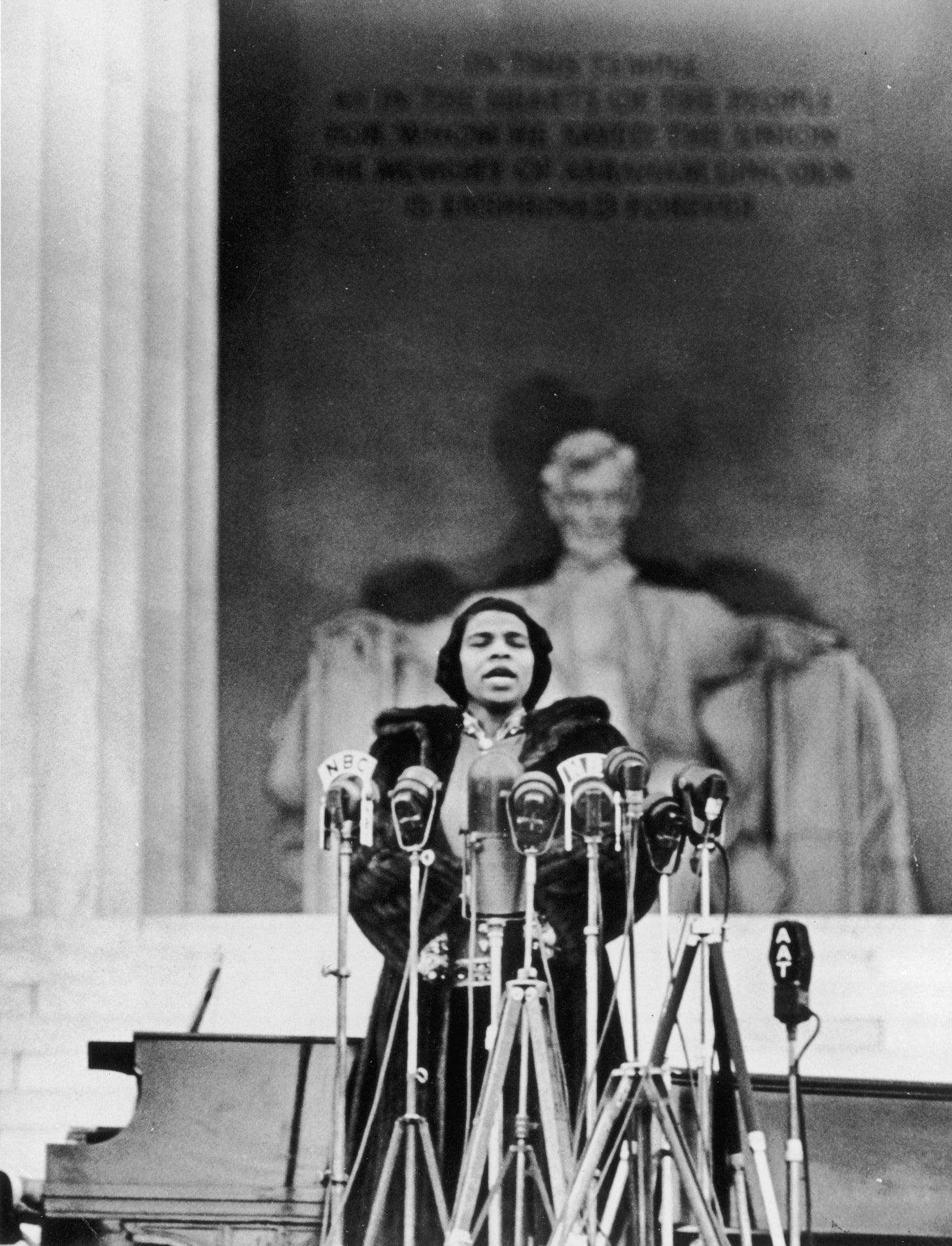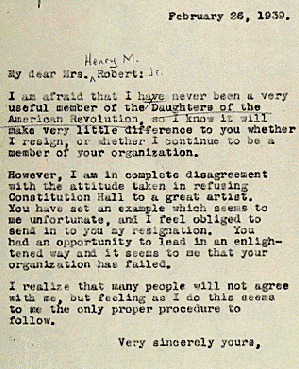This week we marked the one year anniversary of a grievous assault on American democracy. The scene of desecration was the United States Capitol, one of the hallowed marble monuments to our national purpose in our capital city.
So we thought for our Smile for a Saturday we would reclaim this territory and showcase an event that took place at another marble monument many years earlier. It represents a very different chapter in our national story, one of joy and triumph amid darkness.
… a moment of grace, and hope.
The scene takes place on April 9, 1939, Easter Sunday. In Europe Hitler is on the march. In the United States, the economic uncertainty of the Great Depression still grips much of the country. But on this chilly spring afternoon, on the steps of the Lincoln Memorial, came a moment of grace, and hope.
Starring in this drama was the opera singer Marian Anderson, a Black woman who had risen to improbable prominence in a hostile and unjust world due to the power of her voice.
Months earlier, Howard University had invited the 42-year-old international sensation to sing in Washington, D.C. They sought a venue of suitable size to accommodate the expected crowds, and settled on Constitution Hall. But the hall was owned by the Daughters of the American Revolution who denied Anderson a place to sing on account of her race.
Many members of the DAR resigned in protest, including one who just happened to be the First Lady, Eleanor Roosevelt. She was determined to help organize a much bigger stage for Anderson’s talents.
In a matter of weeks, official Washington swung into action. The day arrived, and before a crowd of 75,000, the diversity of America standing side by side, Anderson sang a program that mixed classical standards with Black American spirituals. She famously opened with the song America, and those famous lyrics, “My country tis of thee...” She would change the third line from "of thee I sing" to "to thee we sing," further embracing a spirit of inclusion with her audience.
Please watch this excerpt from a PBS documentary to hear Anderson sing, and get further context for this remarkable moment.
The concert was broadcast live by NBC radio (you can hear the full broadcast here, the music begins at 5:27). Sadly, the film crew capturing the event turned their cameras off after the first verse of the song.
Marian Anderson’s story was first and foremost that of a world class artist recognized as one of the greatest singers of her or any generation. But she also was a pioneer who embodied a courageous resilience. She was the first Black person invited to perform at the White House, and the first to sing with the Metropolitan Opera. She would sing at the inaugurations of both President Eisenhower and President Kennedy. And she would return to Constitution Hall a few years after her performance at the Lincoln Memorial for a benefit concert for the Red Cross in front of an integrated audience, after the DAR apologized and changed their rules.
This singular event in American history demonstrates the power of moral outrage in the face of injustice, and what can be accomplished with collective action. It is sobering to reflect that that moment was closer in time to the Civil War than we are to it today. All four of Anderson’s grandparents had been born into slavery. So when she sang, “land where my fathers died,” it carries extra poignance. Her strength, her artistry and seeing the expressions on the faces of the crowd, both dignitaries and the general public, brought a smile to us during this troubled week. We hope it does for you as well.
As we approach the one year anniversary of Steady, we cannot thank all of you enough for your support. To those just finding us now, or who haven’t signed up, please consider doing so to get the newsletter delivered directly to your email inbox. Most of our content is distributed free of charge.





I’m proud to say that my mother was among those who resigned from the DAR in protest.
This was a moment in history that I was unaware of, Mr. Rather. Yet again, I thank you for enlightening me. Your work is especially crucial at a time when some folks seek to bury our less savory history by giving it a name like critical race theory. You and I are old enough to know that we must learn from the lessons of past if we are to avoid repeating them so thanks for this history lesson.
.